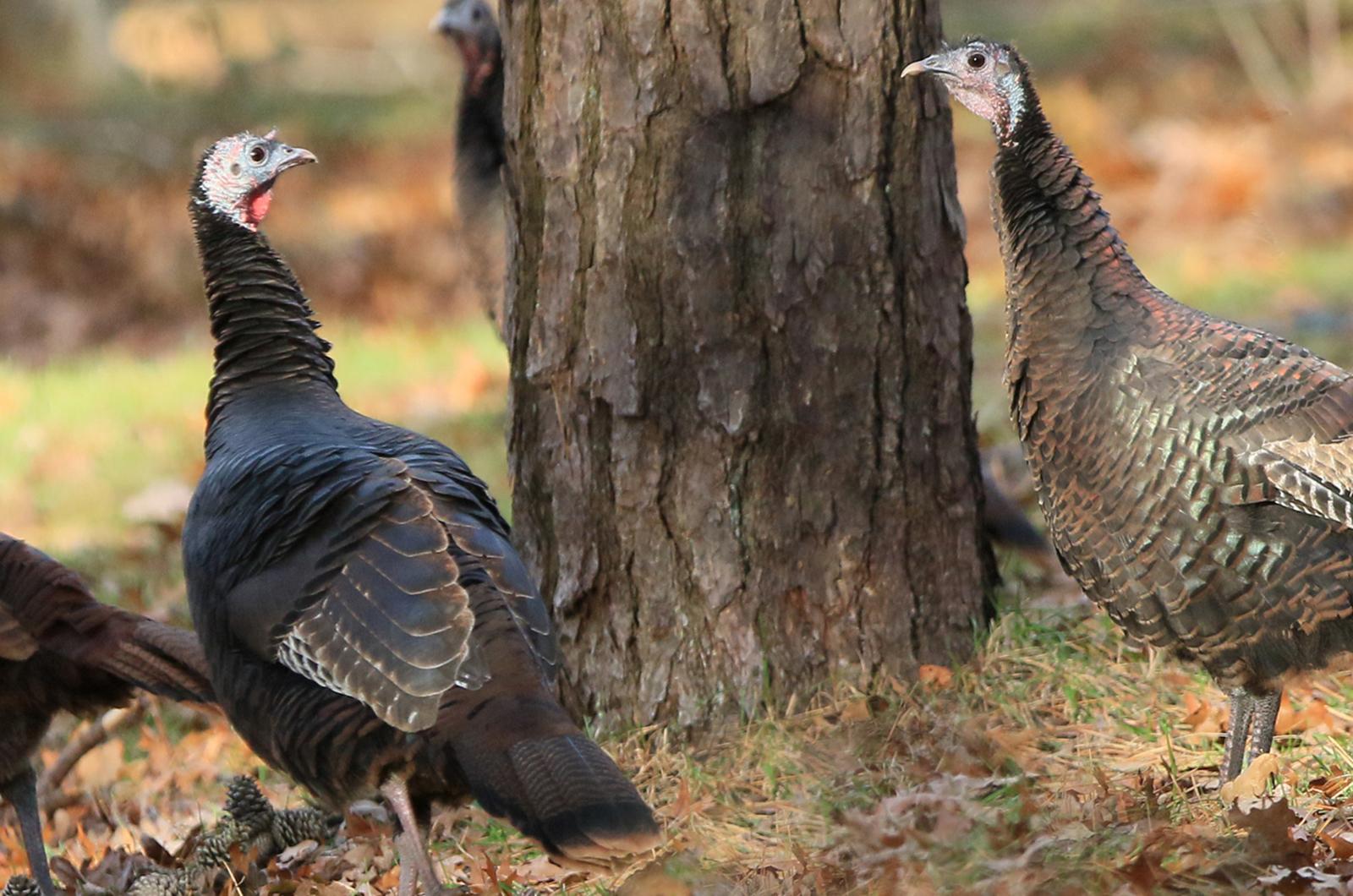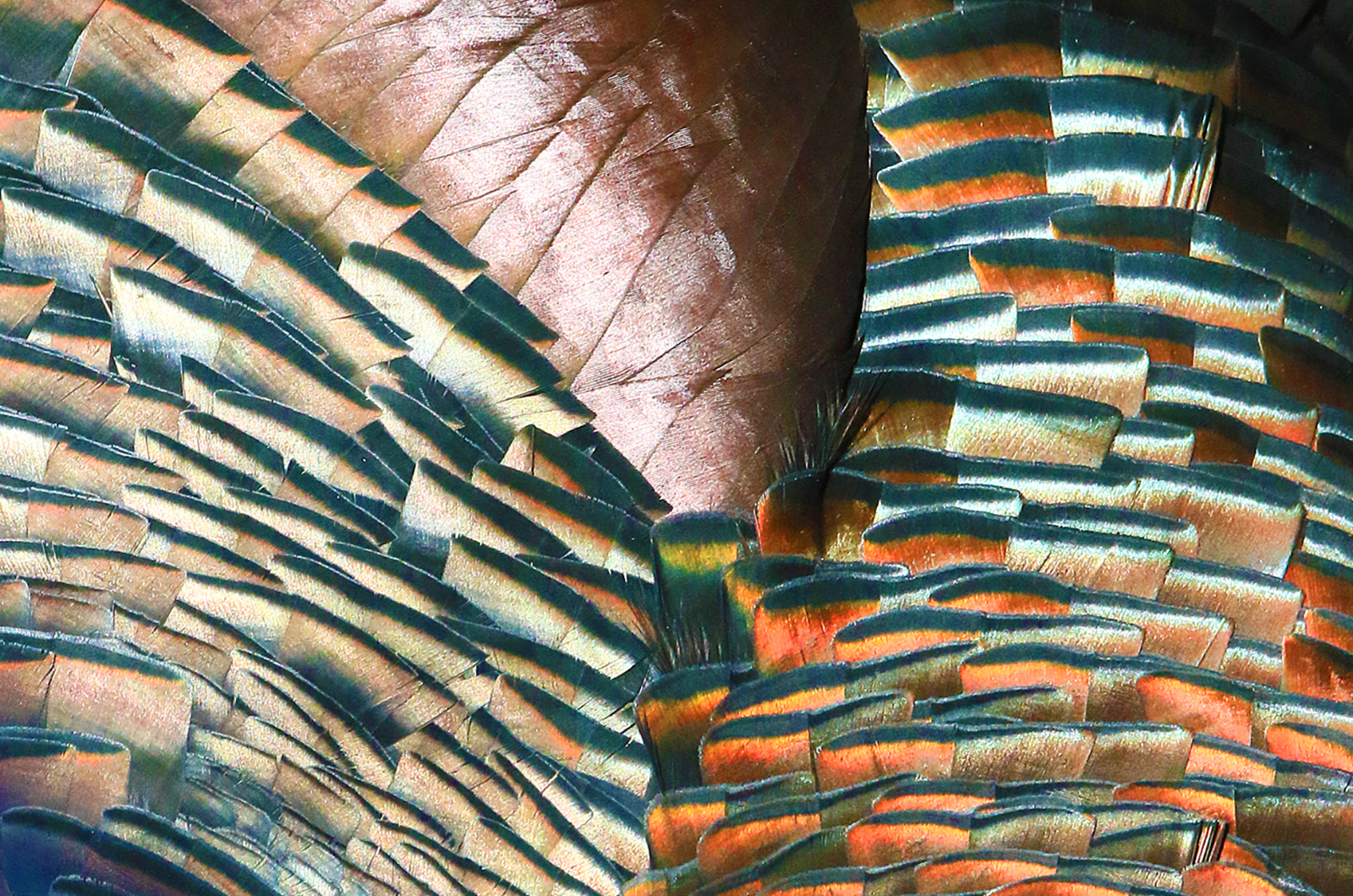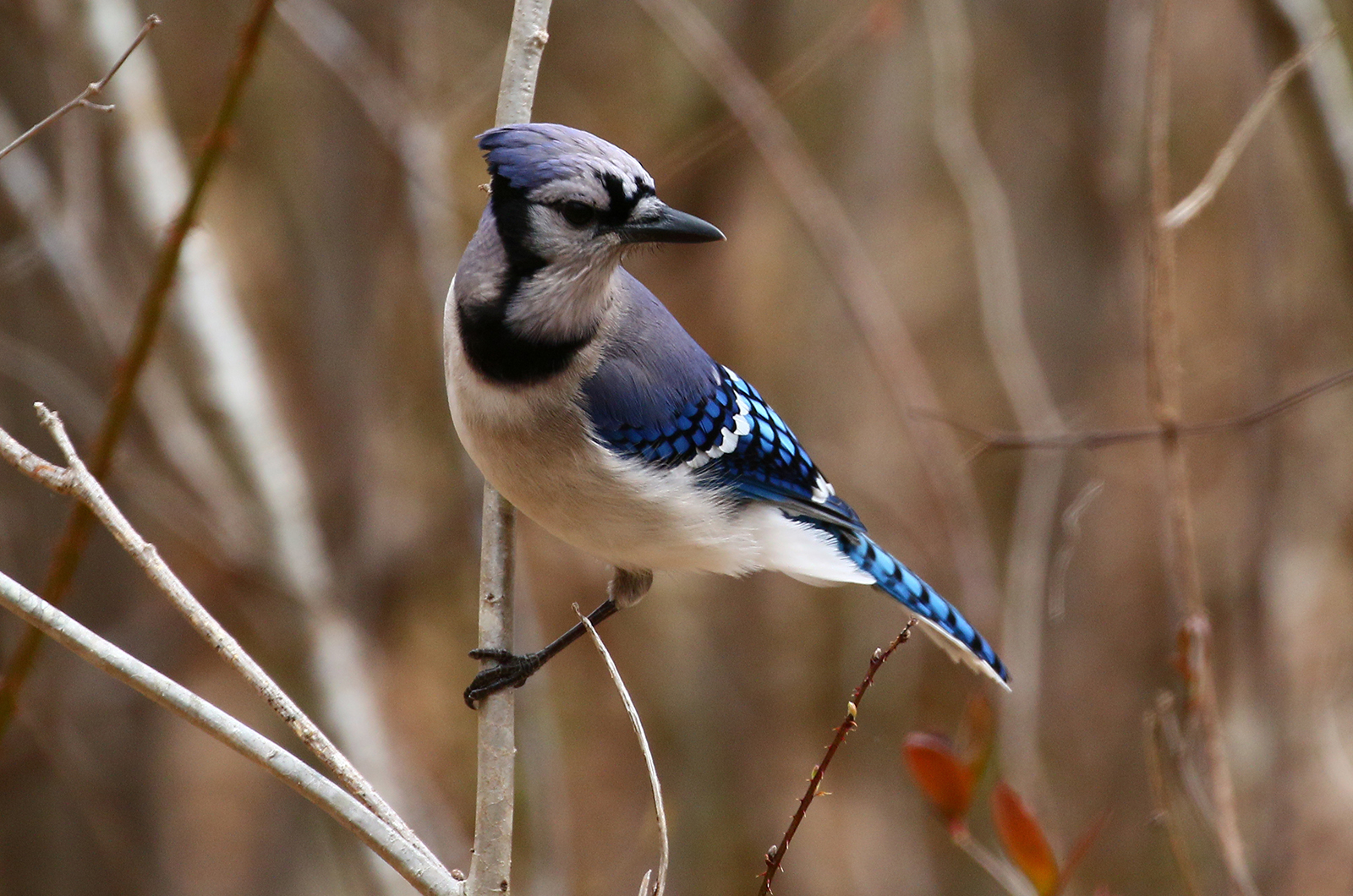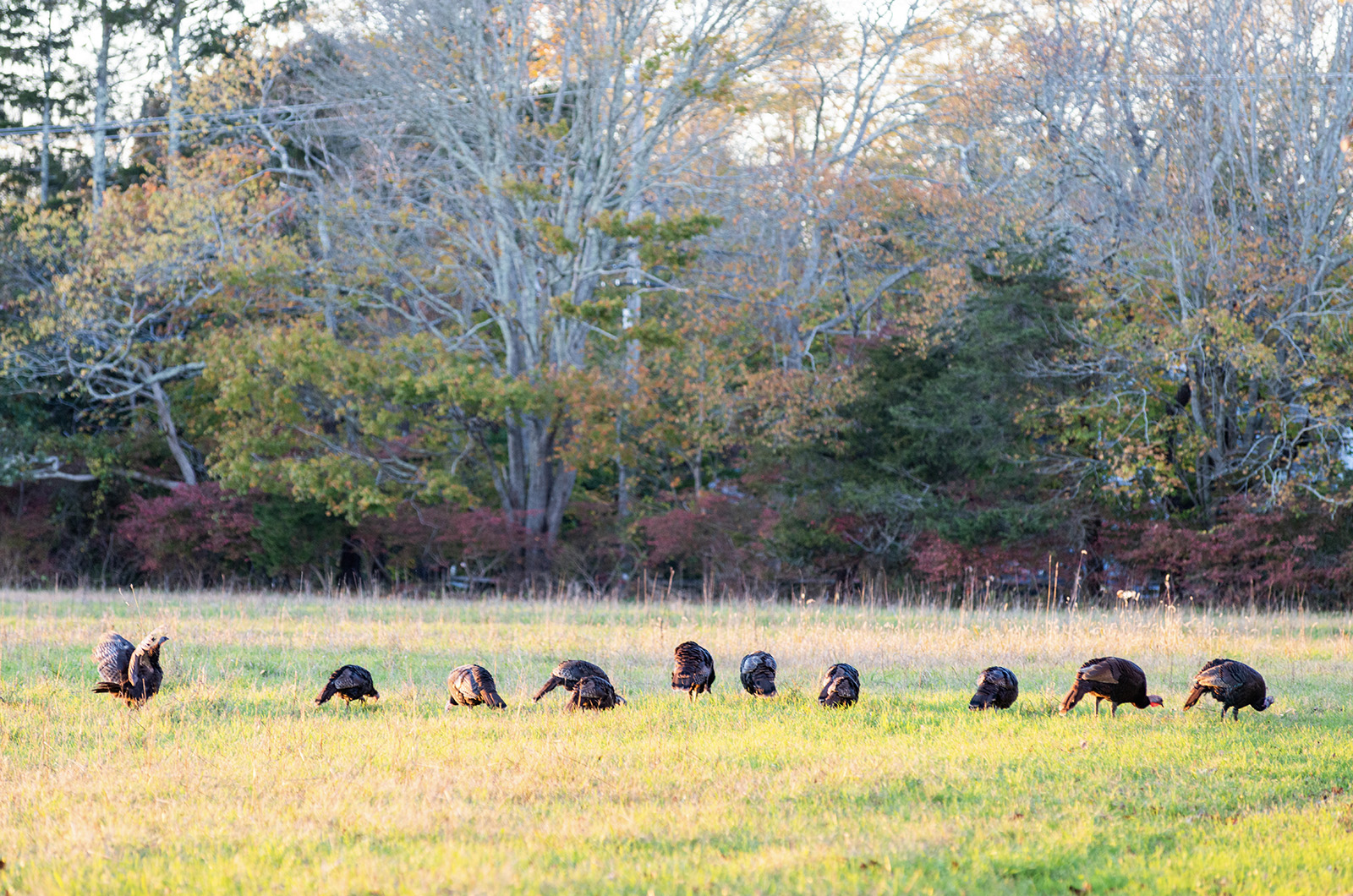The Vineyard’s first cases of avian flu found in dead birds last week have Island officials urging the community to do its part to stop the spread of the disease.
Samples from a flock of dead turkeys in Edgartown and a nearby blue jay preliminarily tested positive at a state lab for avian flu on Feb. 14. The samples will be sent to a federal lab for further testing.
Though avian flu, or highly pathogenic avian influenza (HPAI), has been in mainland Massachusetts for several years, including on the Cape and Nantucket, there had not been any previous cases on the Vineyard. The current cases appear to be isolated to a single part of Edgartown.
The turkeys and blue jay were found in the Smith Hollow neighborhood. Island health officials said there haven’t been any other reported cases of five or more dead birds since the initial 30 Edgartown turkeys. One dead bird is not unusual, but multiple birds in the same location could be indicative avian flu is present.
“Let’s hope the Smith Hollow situation was an abnormality,” said Marina Lent, the Aquinnah health agent.
Health officials are recommending Islanders not feed wild birds and remove bird feeders, birdbaths an anything else that encourage wild birds to congregate.
The removal of bird feeders is a necessary precaution, Ms. Lent said. Avian flu is spread respiratorily and when multiple birds congregate in one area, they’re more likely to get sick.
“When you have a flock of migratory seabirds or water birds all together sitting [around the feeder] for a long time, they eat, they poop, they talk and it’s like a big cocktail party,” Ms. Lent said. “When they leave, they establish [HPAI] in the environment . . . and you can get a hot spot that is capable of infecting birds even after they’ve left.”
Rob Culbert, an ecological consultant with Nature Watch and the Gazette’s bird news columnist, has spent decades studying birds on the Island. He often sits by a window and watches about 15 different species of birds fly to a bird feeder in his yard.
This week he took his bird feeder down, following the updated guidelines outlined by the state.
Mr. Culbert said birds get 90 per cent of their food from the wild, but need every last bit to survive the winter. Even temporarily taking down bird feeders could impact the amount of food accessible to birds, but Mr. Culbert said it’s worth the risk.
“I’m thinking that the mortality from not providing that food is going to be less than the potential mortality of the avian flu,” Mr. Culbert said.
All types of birds can contract avian flu, and the Island’s health departments are keeping a close eye on poultry. As of Thursday, no farms have reported abnormalities in their flocks, Island health officials said.
Avian flu has reached many poultry flocks across the country contributing to a national egg shortage, making prices soar.
Island grocery stores have had lower supplies of eggs the past few months. Cronig’s Markets had signs posted on their egg cases explaining their low stock is due to the avian flu in off-Island suppliers. Stop & Shop also had a sign explaining the high prices of its eggs is due to continuing avian flu outbreaks increasing the cost for suppliers.
Ms. Lent said it is still safe to eat eggs as long as they’re cooked.
“The flu virus along with salmonella and everything else, will be killed by cooking,” Ms. Lent said. “So eggs are not a concern.”
She added that if someone sees an illness within their flocks, to not eat the eggs.
An assessment performed by the U.S. Food & Drug Administration found the risk of humans becoming infected with avian flu through the consumption of contaminated shell eggs to be low and maintains that, with proper storage and preparation, eggs are safe to eat.
Other mammals can contract avian flu, and officials are concerned the virus will mutate over time and infect more species. Humans are able to contract the virus, and while infections are rare, it can be fatal.
In 2024, the CDC reported 66 human cases of HPAI in the United States. Only one has been recorded in 2025.
Brice Boutot, the Edgartown health agent, said there have been no human infections in Massachusetts. The infected humans in the U.S. were in prolonged close contact with infected animals, he explained.
Some local and state governments have reported limited avian flu updates from the federal government after President Donald Trump froze nearly all communication from the Centers for Disease Control and Prevention in January. On Tuesday the U.S. Department of Agriculture said it accidentally fired several employees who worked on the government’s response to avian flu and that it is working to rescind the termination letters.
The Edgartown board of health said it hasn’t experienced any communication difficulties and is regularly speaking with the state about the turkey samples and updated preventative guidelines.
Mr. Culbert worried the lack of federal communication could eventually affect the Vineyard.
“The labs that do the testing are being impacted by the chaos in Washington — the job firings and that sort of thing,” Mr. Culbert said. “Are we ever going to get confirmatory tests of those birds? Who knows.”
As the disease progresses, Mr. Boutot stressed that the public should strictly avoid handling wildlife, especially sick or dead birds.
Keeping pets on a leash and away from birds — and bird feces — is also crucial, Mr. Boutot said. Cats especially, since they are highly susceptible to avian flu and may die from infection.
“A human isn’t likely to contract HPAI from stepping on goose poop, for example,” he said, “but if you track it into your house your cat could be exposed to it and become infected.”
For regularly updated HPAI prevention guidelines from the MassWildlife visit: https://www.mass.gov/news/state-officials-provide-updated-guidance-on-suspected-avian-flu-cases-reported-across-massachusetts#:~:text=Avoid%20handling%20birds%20and%20other,may%20die%20from%20an%20infection.
To report sickness or deaths in domestic poultry visit: https://www.mass.gov/forms/poultry-disease-reporting-form
To report deaths of five or more wild birds visit: https://www.mass.gov/forms/report-observations-of-dead-wild-birds










Comments (2)
Comments
Comment policy »